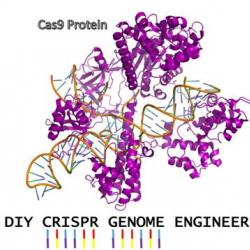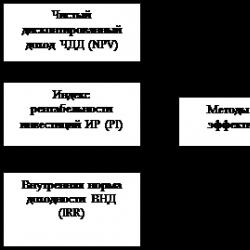What does the expression Buridan donkey mean. "Buridanov's donkey" - to be or not to be

The philosophical question, known as the Buridan's donkey, will always haunt the minds of mankind. Here we will analyze the meaning of phraseology, its origin, and how not to become this same donkey.
The ancient Greek philosopher Aristotle, who lived in the fourth century BC, told his students and listeners a parable. In his Buridani story, the donkey is an indecisive man who dies of thirst and hunger. This person is within walking distance of food and food and does not know what to choose for his salvation.
In fact, Aristotle meant that if a person is faced with such a choice, he should choose what, in his opinion, will turn out to be of great good to him. Much later, in the Middle Ages, the scholastic philosopher Jean Buridan retold this parable in other words.
THE PROBLEM OF BURIDAN'S ASS
Actually there is no problem. There is a donkey dying of hunger, and there are two heaps of seemingly identical hay. What to choose? According to the parable, the donkey can endlessly decide and in the end just starve to death. Also, a lop-eared animal can simply choose one of the two haystacks and start eating. Jean Buridan was able to formulate the question of choice in this way. Is it possible to make a rational choice if it is not entirely possible to calculate what this or that decision will lead to? True, according to the rumors that have survived to this day, Buridan, telling this story to listeners, always asked if he had seen donkeys die in such cases. Otherwise, all of Asia would simply be littered with the corpses of eared animals. In fact, animals are not tormented by the problem of choice, this property is inherent only to humans.
OR PAN OR GONE
In fact, the Buridan donkey is each of us at least several times a week. How often do you catch yourself thinking what is better for you to do in a particular situation and which of two evils to choose? This question is very well illustrated by a well-known anecdote about a monkey who could not decide who to join her - smart or beautiful.
There is not and cannot be a single correct answer in such situations, because a person has his own worldview and worldview.
HEADS OR TAILS?
Let's start with the simplest option - when you need to choose one of two alternatives (things, objects, possibilities). In such a situation, the principle of “heads or tails” is often used, which, of course, greatly simplifies the selection procedure itself, but automatically implies that the one who chooses has a certain “submission to fate”. As they say, "make or break". Although I recently came across a note on the Web stating that a tossed coin is governed by some very complex physical laws.
DO NOT DISCHARGE!
However, even without the intervention of complex scientific theories, the choice of two equivalent alternatives was utterly complicated even in ancient times, by inventing the notorious parable of the Buridan donkey, which died of hunger, unable to choose which of the two identical haystacks it would be better for him to start his life with. meal. The parable demonstrates what very often happens in many scientific discourses about choice, where one problem is imperceptibly replaced by another. A real donkey would certainly have turned out to be smarter than the philosophers who invented it and would hardly have bothered with the problem of the absolute identity of two haystacks, but would have obeyed the instinct of self-preservation, which prescribes to satisfy hunger at all costs, and not to solve complex logical problems. He would just start eating one of the haystacks! And for the future I would have had a second bite. It would be nice for a mere mortal to use this very “donkey strategy”, that is, to ask not the question of implementing a complex pattern, but to remember the purpose of their choice. The main task of the donkey is to eat, and not to choose the best of the haystacks. You immediately understand that only people are capable of fooling themselves with speculative reasoning so subtly to the detriment of their own stomach.
STEP INTO THE FUTURE
The problem is that any choice is always a choice of the future. And we evaluate it, already looking back from the “turned out” future, and decide whether it was successful or not very good. Therefore, the task itself - to make a good choice - has no solution in the present tense. You can only take certain actions that in the future will or will not bring a positive result. As a result, the problem of choice often comes down not to choice as such, but to the problem of a person's lack of an image of a desired future. To the inability to formalize our own desire - what do we need? That is, behind the problem of choice, we often hide the problem of introspection. We cannot decide what we need.
"FREEDOM OF CHOICE
Often behind the problem of choice "hide" problems generated, so to speak, by a certain organization of our consciousness and upbringing based on "relevant" values today. After all, in order for a person to lose sleep, deciding which brand of clothing to prefer to him, it is necessary that this very choice of “brand” be significant for him. If you take a closer look, "freedom of choice" is allowed in modern society almost exclusively in the sphere of consumption. At one time, in our country, even the very concept of “freedom” somehow imperceptibly “stuck together” with the ability to choose precisely goods and services. The abundance of goods has become a symbol of the free world. But what is freedom? In the fact that you are rigidly dictated how you should look at work, introducing the concept of a “dress code”? Or is it that, to a certain degree of wealth, society dictates everything to you - the brand of the car, the place of residence, the way and place of rest? And only the richest are again allowed to “be weird” and decide at their own discretion. There is an old anecdote about how a young employee came to a cool company, where there was a very strict control over compliance with all modern standards, from clothing to a strict ban on smoking, and suddenly sees a peasant in frayed jeans and a faded T-shirt smoking by the window. He is surprised and rather loudly begins to wonder who it is. To which he receives an answer in a frightened whisper: “Hush, hush, do not interfere with him! The last time he thought about it like this, our firm has earned several tens of millions of dollars!”
FEAR AS INCENTIVE
Quite often, choices, especially in personal relationships, are made out of fear or under duress. Not everyone has the courage to take the risk of waiting for "their" person. More than once I heard from ladies who came for a consultation about undeveloped family relationships that the motivation for marrying this particular man was: “there was no other”, “he was the best of what was”, “it's time to have a baby”. Another conversation is that life is such a complex and unpredictable thing, and human relationships are such a mysterious substance that happy marriages sometimes happen even with such flimsy reasons. Even "on the fly".
THE MEANING OF PATIENCE
Endurance in the face of choice is also an art. If you cannot choose for a long time, most likely both options do not suit you very much - and circumstances do not allow you to wait for the third. If you nevertheless made your choice from two alternatives that were not entirely satisfactory, then be prepared to take responsibility for the obvious - most likely, your choice will not suit you after some time and you will have to choose again. So do not invent a place for people in your life, wait a bit, and they themselves will take their rightful place.
RULES
So, before choosing, it is worth considering a simple list of four questions: “Why do we choose? On the basis of what do we choose (what are we guided by?) In what situation do we choose? And only then - "What do we choose?".
1. To begin with, decide on the purpose of the choice - ask yourself the question of the reasons. Do not forget that a clear understanding of the “why” makes any “what” elementary.
2. Remember that often people in a situation of time pressure or the special significance of a win begin to introduce “secondary” reasons - from insignificant to fictional ones. For example, when playing roulette or the lottery, they begin to base their choice on "significant" dates, birthdays, and so on, attributing to them the properties of "lucky" numbers. So if the choice has to be made in extreme conditions, trust your intuition. Especially when it comes to your professional competence.
3. Something you should come to terms with in advance and “do not bother”. So, for example, in situations where we choose in conditions beyond our control, we can only try to reduce risks. That is, either try to "calculate the risks" (which is practically unrealistic in modern conditions), or "minimize" possible losses, risking in advance only that amount (those resources) that we can relatively painlessly lose.
4. Another possibility should not be overlooked. After all, we do not always really need to make a choice between something. Often the choice is to refuse it. The simplest strategy is to reduce the value of what we are offered to choose or would like to receive, but there is no such possibility. Let us recall at least the well-known Krylov's fable about the fox and grapes: “It looks good, but green - there is no ripe berry: you will immediately set your teeth on edge!”
Who is called "buridan donkey"? This expression came into modern Russian from an old parable. Everyone who has a basic understanding of the philosophy of the Middle Ages knows about the meaning of this phraseological unit. When using the expression “buridan donkey”, many people have the following picture before their eyes: a hungry animal stands between two haystacks and cannot choose which one to go to to eat.
Traditionally in Russian, a donkey is usually called a stubborn, self-willed, capricious person. However, the image of a donkey is used in the parable as an example of indecision, lack of will, unwillingness to make a choice. Of course, any other herbivore (for example, a goat, a cow or a horse) could have been in the place of the donkey. But the French philosopher Jacques Buridan (c. 1300 - c. 1358) decided to use the donkey in his parable as a symbol of stupidity and shortsightedness.
Buridan's donkey in philosophy
Buridan, in one of his treatises, wrote that a person is deprived of freedom of choice, and illustrated this is a good example from the life of animals.

Further, Buridan writes that people sometimes act in the same way. When a person cannot make a choice, it leads to degradation and death. It is worth noting that this philosophical paradox, named after Buridan, was found in the writings of Aristotle.
The origin and meaning of the phraseological unit "buridan donkey"
Many phrases and expressions of philosophers have become winged, flying around the whole world. The same can be said about the phrase "buridan donkey". This phraseological unit came into the Russian language together with translations of scientific works of medieval authors. In modern Russian, it is used infrequently, since the word "donkey", used in relation to a person, carries a pronounced negative emotional connotation and can be perceived as a personal insult. However, in written speech, the idiom "buridan donkey" is used quite often, for example, when:

In everyday life, people quite often encounter the Buridan donkey paradox. In order to successfully get out of such a difficult situation, it is necessary to show courage, willpower, and the ability to correctly assess the situation. Not everyone is capable of this.. Sometimes a person who is unable to make a choice comes to a standstill and does not know what to do next. In such cases, it is best to take the advice of relatives and friends, or rely on your own intuition.
The problem of Buridan's donkey is especially characteristic for people who are soft, weak-willed, spineless. And, on the contrary, strong, courageous, decisive people usually quickly make a choice, even if both options are approximately equivalent.
Examples of the use of phraseological units
In oral speech in Russian, this phraseological unit practically not used, since it is not customary in Russia to call a person a donkey. The donkey in Russian folklore is traditionally considered a symbol of stupidity, so this expression can be found mainly in fiction. It is used when describing the suffering of people who cannot make the right choice, for example:
- “Maria had two suitors, and the girl felt great affection for both. She was in the position of Buridan's donkey."
- "He could not make a choice and in despair compared himself to Buridan's donkey."
- "Her husband was torn between wife and mistress like Buridan's donkey."
 In modern Russian, there are several phraseological units that are a little close in meaning to the expression “buridan donkey”, for example: “to rush between two fires”, “out of the fire and into the frying pan”.
In modern Russian, there are several phraseological units that are a little close in meaning to the expression “buridan donkey”, for example: “to rush between two fires”, “out of the fire and into the frying pan”.
But these expressions have a slightly different meaning: they are used not when it is difficult to make a choice, but when both choices lead to problems and difficulties. There is a similar expression in English: between the devil and the deep blue sea.
Phraseologism "buridan donkey" is also often found in scientific texts related to ancient and medieval literature and philosophy. For everyday speech, this expression is considered too bookish.
The problem of Buridan's donkey was relevant at any time - from antiquity to the present day. People who cannot make the right choice are common in any society. It is to them that this expression applies. However, it should be used with caution, because for most native speakers of the Russian language, the word "donkey" used in relation to a person can cause an ambiguous reaction. It is better to replace this phraseological unit with more neutral synonyms: “weak-willed person”, “spineless person”, “doubting person”.
The philosophical question posed by Aristotle will always haunt human minds. Buridan's donkey - the meaning of a phraseological unit is revealed through the behavior of an animal that must make a rational choice between absolutely identical treats.
There are several options for the origin of the phrase "buridan donkey". It is generally accepted that the character from the parable symbolizes stubbornness, stupidity, but this is not entirely true. In fact, this animal has been revered by people since antiquity. In those days, it was considered one of the signs of wealth.
The most famous donkey that brought Jesus Christ to Jerusalem. There is a well-known philosophical parable about Buridan's donkey, which continues the thought of Aristotle. Its meaning is that a person needs time to comprehend the event.
Buridan's donkey is still controversial. All-knowing Wikipedia writes about him. The parable is interpreted as proof of the absence of free will: at the moment of choice, a person is guided by a stronger motivation. In reality, there are two bales of hay and a hungry animal that must choose a treat or starve to death.
Buridan drew attention to the fact that it is not always possible to make a rational choice. The philosopher, using a parable, sought to explain that the painful problem of making a decision is inherent only to people.
Inevitably, there comes a time when you have to choose between:
- beautiful and not so;
- useful and useless;
- honest or dishonest;
- good and evil
- dark or light.
 The donkey chose for a long time between two equivalent haystacks and died of hunger without having made a choice from two equivalent alternatives. He did not dare to start his meal, remaining between two haystacks with exactly the same hay.
The donkey chose for a long time between two equivalent haystacks and died of hunger without having made a choice from two equivalent alternatives. He did not dare to start his meal, remaining between two haystacks with exactly the same hay.
This is exactly what happens with much scientific reasoning about choice, when one problem is subtly replaced by another less important one.
Without a doubt, a real character would not decide for long, but would simply begin to eat, obeying instinct. The donkey is unable to reason logically. Wikipedia has no doubt that he would simply eat one of the haystacks, and without hesitation, would proceed to the second. After all, the main task of the animal is to satisfy its appetite, so as not to die of starvation, and not to argue which of the haystacks is tastier.
The origin of such a strategy is a reminder to mere mortals of the purpose of choice. This once again confirms that only people are able to engage in speculative reasoning to the detriment of their stomach. Pictures with a funny Buridan donkey are the best confirmation of this, they were often used for caricatures.
Buridan's donkey problem
 In the world there is the concept of the divine and darkness. At the same time, material gain, convenience occupy a significant part in people's lives. Every moment a person has to think, speak, make a choice between two haystacks. Act honestly or neglect moral rules for your own benefit.
In the world there is the concept of the divine and darkness. At the same time, material gain, convenience occupy a significant part in people's lives. Every moment a person has to think, speak, make a choice between two haystacks. Act honestly or neglect moral rules for your own benefit.
Every thinking being passes the test of choice. There are events that at first seem like luck for a person, but in the end they bring complete disappointment. Much changes with the course of life, new desires arise. Only Buridan's donkey is a constant choice between good and evil.
Recognizing the truth of good is not easy, sometimes you can make a mistake, but if the choice is honest, then what result does life require from a person? First of all, learn to quickly make a choice, not to subordinate your mind to evil through temptations and pleasures.
What kind of person can be called a Buridan donkey
 This expression is used in relation to a person:
This expression is used in relation to a person:
- doubter;
- extremely indecisive;
- long hesitant.
The problem of Buridan's donkey lies in the choice between approximately the same or seemingly such options. As soon as a person chose, he immediately felt that he was living. When his mind is tormented by a problem, then the person does not seem to be free. While all the pros and cons are being weighed for a long time about a proposal, for example, about a vacancy, then another, more decisive, quickly analyzing the situation will take it.
Useful video
Summing up
The meeting in life with the Buridan donkey is perfectly illustrated by an anecdote in which the monkey chooses for a long time to whom to attribute himself to: smart or beautiful. In reality, the meaning of phraseology can be found at every step. Almost every person faces a situation of choice in life. If he thinks for a long time, he may lose a lucrative offer and he will be called Buridan's donkey.
Buridan's donkey
Buridan's donkey
From Latin: Asinus Buhdani inter duo prata (azinus buridani inter duo prata). Translation: Buridan's donkey between two lawns.
Attributed to the French scholastic philosopher Jean Buridan (1300-1358). Allegedly, the latter, wanting to prove the absence of free will in man, likened him to a donkey, which stands in a meadow exactly in the middle between two equal haystacks. And the philosopher allegedly claimed that in this case the donkey would not be able to choose any of them, even if he were dying of hunger. From here, respectively, the expression "Buridan's donkey" arose.
But nowhere in the writings of J. Buridan is there such an example, just as there is no evidence that he ever expressed such an idea in an oral conversation. Why the name of Buridan is mentioned in this case is unknown.
But the idea that a person cannot make a choice between two absolutely equal options, there are other authors. Aristotle (384-322 BC) in his essay “On Heaven” speaks of a man who is tormented by hunger and thirst, but since food and drink are at an equal distance from him, he remains motionless. Also, Dante in his Divine Comedy (Paradise, Canto 4) describes a similar situation: if someone is between two identical dishes, then he would rather die than make at least some choice.
Ironically: about an indecisive, weak-willed person who hesitates between options for solving a problem and cannot choose any of them.
Encyclopedic Dictionary of winged words and expressions. - M.: "Lokid-Press". Vadim Serov. 2003 .
See what "Buridan's donkey" is in other dictionaries:
- "Buridan's donkey", a paradox of absolute determinism in the doctrine of will: a donkey placed at an equal distance from two identical bundles of hay must die of hunger, because it will not be able to choose one or another bundle. In the writings of J. Buridan, this image is not ... ... encyclopedic Dictionary
Buridanov Donkey- Buridan's Donkey ♦ Âne de Buridan The name of the 14th-century French philosopher Jean Buridan is known today solely thanks to this very donkey, the parable of which is attributed to him, although in none of his surviving writings about any donkey ... ... Philosophical Dictionary of Sponville
Exist., number of synonyms: 1 buridan donkey (1) ASIS synonym dictionary. V.N. Trishin. 2013 ... Synonym dictionary
The paradox of absolute determinism in the doctrine of the will: a donkey, placed at an equal distance from two identical bundles of hay, must die of hunger, because it will not be able to choose one or another bundle. This image was not found in the writings of J. Buridan. IN… … Big Encyclopedic Dictionary
The comparison used to explain free will and, in fact, was already in Aristotle and Dante: a donkey, standing between two completely identical bundles of hay at an equal distance from it, had to starve, because - at ... ... Philosophical Encyclopedia
Buridan's donkey is a philosophical paradox named after Jean Buridan, despite the fact that it was known from the works of Aristotle, where the question was posed: how can a donkey who is given two equally seductive treats, can ... ... Wikipedia
buridan donkey- burida / new donkey only unit, stable combination of books. A person who hesitates between two equal possibilities. There were as many arguments in favor as there were against; at least these arguments were equal in strength, and Nekhlyudov, laughing... ... Popular dictionary of the Russian language
"BURIDAN'S DOSEL"- the famous fable attributed to the scholastic philosopher Buridan, depicting a donkey dying of hunger between an armful of oats and a bucket of water due to the inability to choose between two equivalent benefits. Contrary to popular belief here... Philosophical Dictionary
Buridan's donkey- about an extremely indecisive person, hesitating in the choice between two equivalent desires, two equivalent decisions. The expression is attributed to the French philosopher scholastic of the 4th century. J. Buridan, who argued that the actions of living beings ... ... Phraseology Handbook
buridans- Buridan. By the name of fr. 14th century scholastic philosopher Jean Buridan, who, allegedly as proof that there is no free will, gave the following example: a donkey; being at the same distance from two identical bales of hay, must die, because ... Historical Dictionary of Gallicisms of the Russian Language
Books
- The paradox of choice, Schwartz B. The problem of choice has always existed. Buridan's donkey once chose between two haystacks; modern man, who has a large number of alternatives, can easily fall into ...






